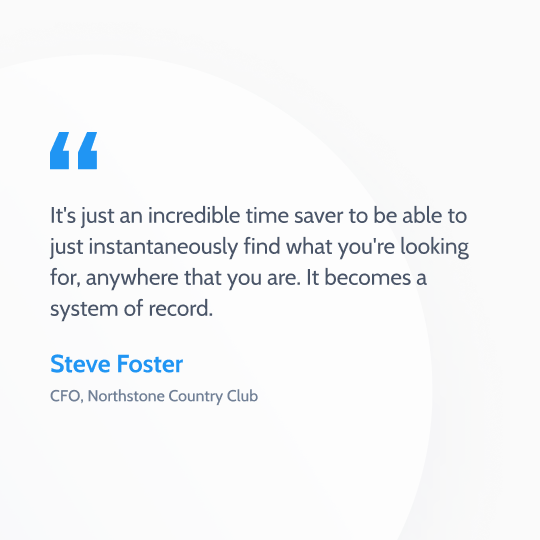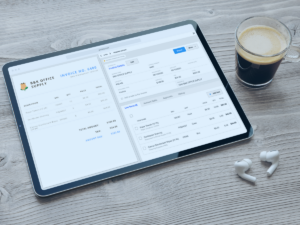
How Long Should You Keep Your Documents When Invoice Filing?
by The Ottimate Editorial Team
The day-to-day details of running a business are never-ending. Placing your next order, managing the employee schedule, and focusing on customer experience may usually feel like the most urgent items on your to-do list. However, other facets of your business, like accurate record keeping, are also critical. Maintaining your documents when invoice filing and having accessible data can impact almost all areas of your business.
If you are exploring your organization’s options for invoice data storage, there are many different areas to consider. Here, we’ll examine why you want to have long-term access to your invoice data, the benefits of digitized data, as well as how to choose an Accounts Payable (AP) solution that makes storing data easy and cost-effective.

Benefits of Digitized Invoice Filing Data
“Digitizing” your invoice data refers to bringing all of your data into one centralized, digital system. You may replace paper-based systems, importing paper invoices or records into digital repositories. It may also involve making changes to your existing digital system, centralizing disparate data into one platform.
With digitized invoice documents, all of the data is “friendly” — i.e. accessible to users, searchable, and consistently formatted. With digitized invoice data, you can take advantage of a number of different benefits.
Digital Invoice Filing Cabinet
Most businesses historically used filing cabinets to house invoices and other AP documents. This old-school system was only accessible in person, required time to properly file and organize, and also required floor space in an office.
By contrast, digitizing your invoice data can replace all that paper with a digital repository, serving as a filing cabinet “in the cloud”.
With a centralized database, anyone in your organization (with the appropriate access) can check historical invoice data from anywhere. In the “work from home” era, this flexible data access allows your organization to adapt to new working patterns. In addition, a multi-location company can benefit from centralizing operations and giving remote staff access to a consistent database.
Northstone Country Club, an Ottimate customer, experienced the benefits of a digital transformation. In their organization, paper AP documents were once stored in “massive legal files in filing cabinets.” If any department head wanted information in this manual system, they needed to sort through the paperwork in the file cabinet to find it.
Steve Foster, the Chief Financial Officer & Club Controller at Northstone, explained that after adopting AP automation software, “It’s just an incredible time saver to be able to just instantaneously find what you’re looking for, anywhere that you are. It becomes a system of record.” Steve added that the digitized invoice records have provided “huge” time savings across the company.

Streamlined Invoice Filing Process
Digitized invoice data can also improve your operational processes. By being able to manage your invoices remotely, you can add in new efficiencies.
For instance, an AP solution can store a digital copy of each invoice, connected to the full trail of approvals, exports, and payments tied to that invoice. These records will also include images of original invoices, which means that you don’t need to keep paper on hand, but you still have the original image to reference if needed. This provides a “breadcrumb” trail for any troubleshooting.
With AP automation software, invoice, approval, and payment information are indexed and housed in a searchable system. This centralized repository can streamline processes between your staff. With everyone looking at the same information, your team can be on the same page and resolve any issues faster and more accurately.
Preparing for Accounting Audits
One of the biggest benefits for long-term digital storage of AP data is preparing your business for the unexpected, like an audit.
First, an invoice solution can help prevent the need for an audit in the first place by ensuring data is more accurate. Automating general ledger (GL) coding, rather than requiring your bookkeeping team to do it by hand, can not only save your staff time and energy, but also minimize errors.
Second, in the event that records do need to be revisited, AP automation allows for easy review by connecting relevant records. Each digital copy of an invoice is connected to any other actions, like approvals or payments. With searchable data, your team can review documents in a digital system, rather than hunting down invoices in filing cabinets.
Your company books may face an audit for a number of reasons. As explored above, your team may need to address something that is off in your book of accounts. You may also face an external audit because of a merger or acquisition, or at the request of a corporate franchise organization. Some businesses may undergo an audit from the Internal Revenue Service (IRS) or a compliance organization for loan forgiveness.
With reliable, long-term storage of your invoice documents, you are prepared for any internal or external examination of your data.
Searchable Data
Automatically digitizing the invoice at the point of capture means that it is easier to index every invoice accurately. Many solutions may offer storage for documents, but storing and indexing document information provides you with the ability to search large amounts of data.
With invoice digitization, users can search by line-item, date, vendor, total amounts and more. Being able to search your invoice data in your “digital filing cabinet”, by any detail, is a powerful tool.
With searchable data, you have the capability to drill down to really precise data points. Steve Foster from Northstone Country Club, gave a hyper-specific example, “Now, you just open Ottimate, you find whatever you want, whenever you want it, wherever you are. If you’re on the beach, and somebody says, ‘Hey, did you buy a driver from Titleist on August 3?’, you just go look and see if you got it right.”
His example showcases the capacity of a solution like Ottimate to help your company find whatever data you need, wherever you are.
Leveraging Data Insights
Accessible invoice data gives your team the tools needed for successful accounting and invoice processing. It can also unlock new insights into your inventory costs that you can use to navigate challenges like rising inflation. Information from vendor invoices can provide actionable insights for businesses to help control costs.
For instance, with centralized data about individual ingredient costs captured in the AP automation process, a multi-unit restaurant group can compare invoice data across different stores. This data can show overall pricing structures between locations, and pricing per unit, so operators can audit vendor price consistency and make sure each store is choosing the optimal option.
In addition, leveraging accessible invoice data can reveal new cost savings opportunities. For instance, Ottimate aggregated invoice data from 2021 uncovered counterintuitive food cost trends, like disruptions in the sugar supply chain that made small sizes of sugar cheaper than mid-bulk counterparts.
When business owners are able to search and compare data across time, locations, and vendors, in a digitized data solution, these kinds of insights can be used to improve business health.

How Long Should You Keep Documents When Invoice Filing?
Long-term invoice data storage is necessary for your organization, but… how long is “long-term”?
First, for tax and regulatory considerations, keeping your records securely stored in the event of something like an IRS audit is incredibly important. Exact IRS guidance can vary depending on the type of organization, but guidelines can recommend keeping your document records anywhere from three to six years (excluding exceptional circumstances like not filing a return).
Your organization may also be interested in retaining invoice documents for your own business health. Historical invoice data about inventory costs can also fuel insights in your other business tools, from sales forecasting at a retail store to menu engineering for restaurants. Especially when navigating times of turbulence, having the ability to review data over the long-term can help your organization look past short-term trends and identify recurring trends.
Choosing the Right Storage Partner
It’s important to have the right software partner to house your secure, long-term digital storage, historical data.
Depending on the size of organization and level of access, some AP software solutions charge access for storage. For many companies, paying an additional fee for storage and access of historical data is a burdensome cost. Trying to decide whether the business can afford long-term data storage leaves many business owners wondering if it is worth it.
An invoice solution like Ottimate stores documents for up to seven years, without an extra storage fee. Making documents searchable online for up to seven years is incredibly helpful during the general IRS auditable period, and it can also help fuel business insights and data over the long-term.
Your Business, Your Invoice Data
Maintaining access to your AP data over time can benefit many different areas of your business, increasing your business resilience and mitigating risks in the future.
Interested in finding an invoice processing and storage solution for the long-term? To see how the automated invoice process can work for your business, request a demo of Ottimate’s software today.
Stay up to date on the latest news in AP automation and finance
Related

